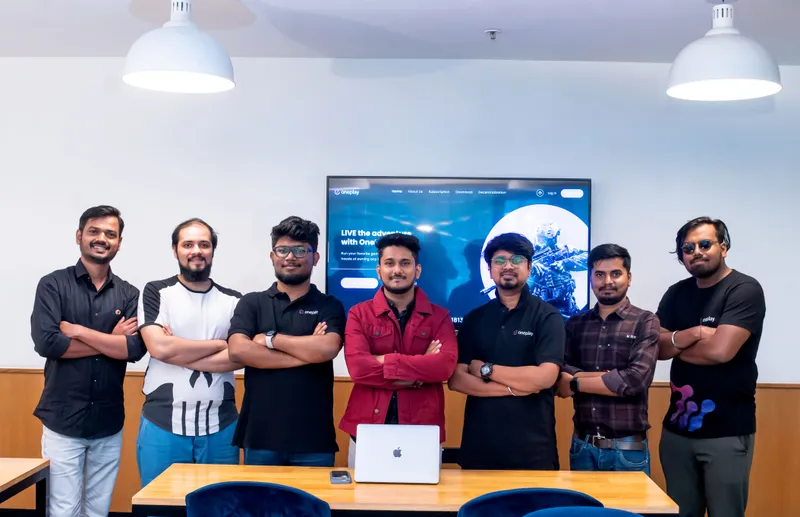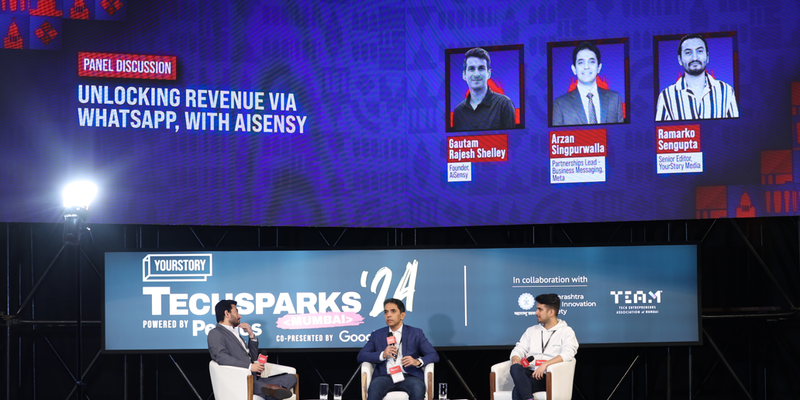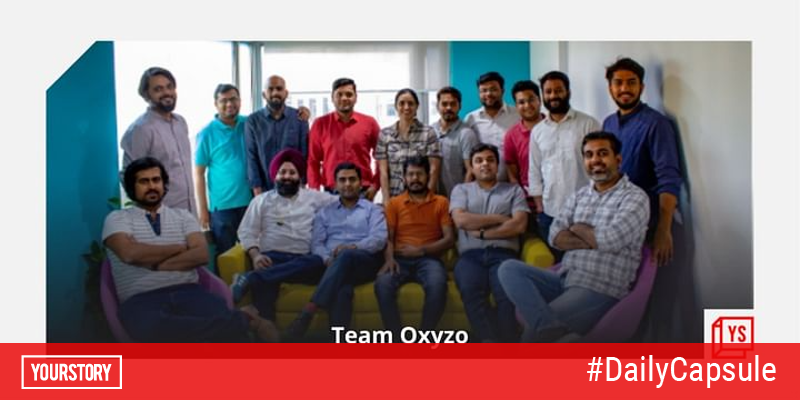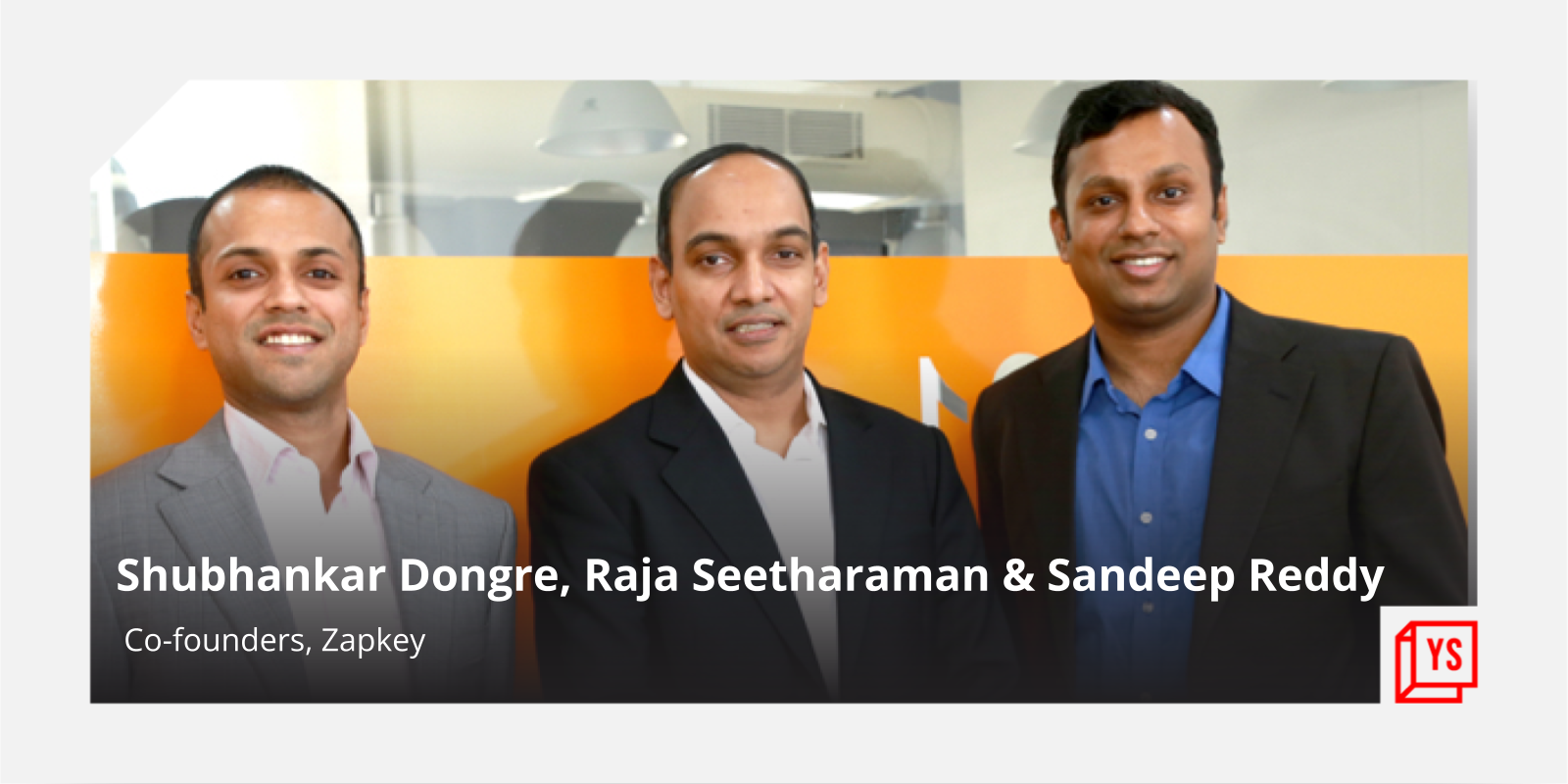OnePlay aims to make gaming more affordable with decentralised tech
In a bid to make games like GTA and Counter Strike more accessible to those who can’t afford gaming rigs, OnePlay is building a decentralised platform for users everywhere.
Building a decentralised cloud gaming platform was not part of the entrepreneurial plan for Harshit Jain and Abhik Saha as their hearts were set on the OTT space.
“We thought how do we bring about the next big OTT business and how do we get people there,” Jain, Co-founder and CEO of gaming tech startup tells YourStory. This is when the boom in India’s gaming space caught their eye and they decided to go all in.
Their bet wasn’t unfounded. As per a consumer insights report by gaming and interactive media fund Lumikai and AWS, the Indian e-sports industry grew to $40 million in 2022 and is expected to reach $140 million by 2027 at a compounded annual growth rate (CAGR) of 32%.
A gaming rig—the whole setup of a PC, keyboard, and a high-computing CPU—can cost anywhere between Rs 77,000 and Rs 1 lakh to set up. Per Jain and Saha, users of OnePlay can experience these games for as low as Rs 39 per hour or avail of a monthly plan at Rs 499. Users can access these games via any device they own.
In December 2022, the co-founders decided to set up OnePlay—a decentralised cloud gaming platform, which allows users to access several titles from across different stores without the need of having advanced gaming equipment like high-processing CPUs.
Users can sign up for a set number of hours of gameplay after playing a flat fee through the OnePlay platform. “Think of it like a cyber cafe, you enter and you pay 50 rupees to access the internet for a fixed amount of time. That’s exactly what this is,” says Jain.
Several AAA titles like Counter-Strike and GTA which require a device with a high graphic card to play, can be accessed via OnePlay.
In March, OnePlay raised $1.8 million in seed funding from Baring Capital, Inflection Point Ventures, and some other prominent angel investors like Kunal Shah, Suraj Nalin, Amit Shrivastav, and Jitendra Gupta.
Since officially launching last month, OnePlay has over 27,000 registered users and about 5,000 paying subscribers.
In time, OnePlay is hoping to transition beyond cloud gaming and eventually become a cloud streaming platform. “So eventually, you can not only just play games, you can do everything on the cloud, like, for example, running some 3D software, playing or working from just your phone,” says Saha, the company’s Co-founder and CTO.
Decentralised on the cloud
A crucial part of running a cloud gaming platform is ensuring that all the servers—which are distributed remotely—provide the same amount of latent speed for all users on these platforms.
Saha says this problem can be resolved with decentralisation of the servers. “In our setup, the servers are distributed rather than having a centralised location. If you look at what traditional companies do, they build data centres etc. [to manage the workload], what we are looking to do is find partners who can provide us these services,” he says.
This, according to him, will solve two key issues with managing infrastructure—there will not be any direct investment involved, and at the same time, partners who team up with OnePlay will get a share of the revenue for hosting the platform since the process is decentralised.
The other challenge is addressing the issue of ping or the speed at which games load. At the moment, game experiences across the country can differ based on how far a user is from the main centralised server. As per Saha, with this process, OnePlay would have an excess amount of servers, which would give users the chance to connect to a server that’s closest to them.
Running such a project is not without its complications. For starters, more servers mean more complexities to solve, and there isn’t a model similar that exists to follow. “Obviously from an industry perspective maintaining this level of computation in several different regions, with different types of vendors and servers, is new. I wouldn’t say we have solved the problem entirely, but we have solved it at least 50-60% and are slowly getting there,” admits Saha.

Team OnePlay | Image credit- OnePlay
At the moment, OnePlay has about 67 active servers in the country along with its partners. In the future, the startup also plans to issue a token where users can earn digital currency while playing on the platform.
“As for the token, when we achieve a large set of users and servers on our platform, we wanted to bring about a uniform payment system…these tokens are neutral in nature,” says Jain. “You can pay for them using your fiat. Let’s say you have bought 30 hours of gameplay using 30 tokens, we will give away 25 of these coins to actual server owners.”
Once the gameplay time is secured, all a user needs to do is download the game client they are interested in and then log in using those credentials onto OnePlay. “Because at the end of the day, we are like a virtual PC. Whether you're playing from your phone, TV does not matter,” says Jain.
For Jain and Saha, looking at OnePlay also involves looking towards the future, which they believe will be dominated by several other use cases. “In about three to four years, it might be possible to render and even stream 3D assets,” says Jain.
As for the short-term, the goal for OnePlay, and its team of nearly 40 people, is to build a platform that is accessible to gamers anywhere without the need to spend money on expensive equipment. “So if someone wants to play triple AAA games you can come to our platform without the need for downloading anything,” says Jain.
(The copy was updated to correct factual errors.)
Edited by Affirunisa Kankudti




